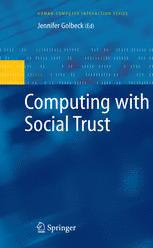Table Of ContentHuman–Computer Interaction Series
Editors-in-chief
JohnKarat
IBMThomasJ.WatsonResearchCenter(USA)
JeanVanderdonckt
Universite´catholiquedeLouvain(Belgium)
EditorialBoard
GregoryAbowd,GeorgiaInstituteofTechnology(USA)
Gae¨lleCalvary,LIG-UniversityofGrenoble1(France)
JohnCarroll,SchoolofInformationSciences&Technology,PennStateUniversity(USA)
GilbertCockton,UniversityofSunderland(UK)
MaryCzerwinski,MicrosoftResearch(USA)
StevenFeiner,ColumbiaUniversity(USA)
ElizabethFurtado,UniversityofFortaleza(Brazil)
KristinaHo¨o¨k,SICS(Sweden)
RobertJacob,TuftsUniversity(USA)
RobinJeffries,Google(USA)
PeterJohnson,UniversityofBath(UK)
KumiyoNakakoji,UniversityofTokyo(Japan)
PhilippePalanque,Universite´PaulSabatier(France)
OscarPastor,UniversityofValencia(Spain)
FabioPaterno`,ISTI-CNR(Italy)
CostinPribeanu,NationalInstituteforResearch&DevelopmentinInformatics(Romania)
MarilynSalzman,SalzmanConsulting(USA)
ChrisSchmandt,MassachusettsInstituteofTechnology(USA)
MarkusStolze,IBMZu¨rich(Switzerland)
GerdSzwillus,Universita¨tPaderborn(Germany)
ManfredTscheligi,UniversityofSalzburg(Austria)
GerritvanderVeer,UniversityofTwente(TheNetherlands)
ShuminZhai,IBMAlmadenResearchCenter(USA)
Human–Computer Interaction isa multidisciplinary fieldfocused on human aspects of the
developmentofcomputertechnology.Ascomputer-basedtechnologybecomesincreasingly
pervasive – not just in developed countries, but worldwide – the need to take a human-
centered approach in the design and development of this technology becomes ever more
important. For roughly 30 years now, researchers and practitioners in computational and
behavioralscienceshaveworkedtoidentifytheoryandpracticethatinfluencesthedirection
of these technologies, and this diverse work makes up the fieldof human–computer inter-
action.Broadlyspeaking, itincludesthestudyof whattechnology mightbeabletodofor
peopleandhowpeoplemightinteractwiththetechnology.
Inthisseries,wepresentworkwhichadvancesthescienceandtechnologyofdeveloping
systemswhicharebotheffectiveandsatisfyingforpeopleinawidevarietyofcontexts.The
human–computer interaction series will focus on theoretical perspectives (such as formal
approachesdrawnfromavarietyofbehavioralsciences),practicalapproaches(suchasthe
techniques for effectivelyintegrating user needs insystemdevelopment), and social issues
(suchasthedeterminantsofutility,usabilityandacceptability).
Authorguidelines:www.springer.com/authors/book+authors>AuthorGuidelines
Forothertitlespublishedinthisseries,goto
http://www.springer.com/series/6033
Jennifer Golbeck
Editor
Computing with Social Trust
123
Editor
JenniferGolbeck
UniversityofMaryland,MD
USA
[email protected]
ISSN:1571-5035
ISBN:978-1-84800-355-2 e-ISBN:978-1-84800-356-9
DOI10.1007/978-1-84800-356-9
BritishLibraryCataloguinginPublicationData
AcataloguerecordforthisbookisavailablefromtheBritishLibrary
LibraryofCongressControlNumber:2008939871
(cid:2)c Springer-VerlagLondonLimited2009
Apart from any fair dealing for the purposes of research or private study, or criticism or review, as
permittedundertheCopyright,DesignsandPatentsAct1988,thispublicationmayonlybereproduced,
stored or transmitted, in any form or by any means, with the prior permission in writing of the
publishers,orinthecaseofreprographicreproductioninaccordancewiththetermsoflicencesissued
bytheCopyrightLicensingAgency.Enquiriesconcerningreproductionoutsidethosetermsshouldbe
senttothepublishers.
Theuseofregisterednames,trademarks,etc.,inthispublicationdoesnotimply,evenintheabsenceofa
specificstatement,thatsuchnamesareexemptfromtherelevantlawsandregulationsandthereforefree
forgeneraluse.
Thepublishermakesnorepresentation,expressorimplied,withregardtotheaccuracyoftheinformation
containedinthisbookandcannotacceptanylegalresponsibilityorliabilityforanyerrorsoromissions
thatmaybemade.
Printedonacid-freepaper
SpringerScience+BusinessMedia
springer.com
Preface
This book has evolved out of roughly five years of working on computing with
socialtrust.Inthebeginning,gettingpeopletoacceptthatsocialnetworksandthe
relationshipsinthemcouldbethebasisforinteresting,relevant,andexcitingcom-
puterscience was a struggle.Today,socialnetworkingand socialcomputinghave
becomehottopics,andthoseofusdoingresearchinthisspacearefinallyfindinga
wealthofopportunitiestoshareourworkandtocollaboratewithothers.
This book is a collection of chapters that cover all the major areas of research
in this space. I hopeit will serve as a guideto studentsandresearcherswho want
a strongintroductionto work in the field, and as encouragementand directionfor
thosewhoareconsideringbringingtheirowntechniquesto bearonsomeofthese
problems.
IthasbeenanhonorandprivilegetoworkwiththeseauthorsforwhomI have
somuchrespectandadmiration.Thankstoallofthemfortheiroutstandingwork,
whichspeaksforitself,andforpatientlyenduringallmyemails.Thanks,asalways,
to Jim Hendler forhis constantsupport.Cai Ziegler hasbeen particularlyhelpful,
both as a collaborator, and in the early stages of development for this book. My
appreciationalsogoestoBeverleyFord,RebeccaMowatandeveryoneatSpringer
whohelpedwithpublicationofthiswork.Finally,thankstothemanypeoplewho
helpedmeandthebookalongtheway,includingAllisonDruin,MariyaFilippova,
James Finlay, Irene, John, Tom, Michelle, Kaitlyn, Emily, Bo, Ike, Wrigley, and
Crystal Golbeck,PaulJaeger,Ugur Kuter,Dan Norton,DagobertSoergel,and,as
always,π andK.
CollegePark,Maryland JenniferGolbeck
v
Contents
1 IntroductiontoComputingwithSocialTrust ..................... 1
JenniferGolbeck
PartI ModelsofSocialTrust
2 ExaminingTrust,ForgivenessandRegretasComputational
Concepts...................................................... 9
StephenMarshandPamelaBriggs
3 ANon-reductionistApproachtoTrust ........................... 45
CristianoCastelfranchi,RinoFalcone,andEmilianoLorini
4 SocialTrustofVirtualIdentities................................. 73
Jean-MarcSeigneur
PartII PropagationofTrust
5 Attack-ResistantTrustMetrics..................................121
RaphLevien
6 OnPropagatingInterpersonalTrustinSocialNetworks............133
Cai-NicolasZiegler
7 TheRippleEffect:ChangeinTrustandItsImpactOvera
SocialNetwork ................................................169
JenniferGolbeckandUgurKuter
PartIII ApplicationsofTrust
8 ElicitingInformativeFeedback:ThePeer-PredictionMethod.......185
NolanMiller,PaulResnick,andRichardZeckhauser
vii
viii Contents
9 CapturingTrustinSocialWebApplications ......................213
JohnO’Donovan
10 TrustMetricsinRecommenderSystems..........................259
PaoloMassaandPaoloAvesani
11 TrustandOnlineReputationSystems............................287
MingKwanandDeepakRamachandran
12 Internet-BasedCommunityNetworks:FindingtheSocialinSocial
Networks .....................................................313
K.FaithLawrence
Index .............................................................333
Contributors
PaoloAvesani FondazioneBrunoKessler,ViaSommarive18,Povo(TN),Italy
[email protected]
PamelaBriggs NorthumbriaUniversity,SchoolofPsychologyandSportSciences,
NewcastleuponTyne,UK,[email protected]
CristianoCastelfranchi InstituteofCognitiveSciencesandTechnologies-CNR,
Rome,[email protected]
RinoFalcone InstituteofCognitiveSciencesandTechnologies-CNR,Rome,Italy
[email protected]
JenniferGolbeck CollegeofInformationStudies, 2118FHornbakeBuilding,
UniversityofMaryland,CollegePark,MD20742,USA,[email protected]
UgurKuter UMIACS,UniversityofMaryland,CollegePark,MD,20742,USA
[email protected]
Ming Kwan nGenera(FormerlyNew Paradigm)145 King St. East, Toronto,
Ontario,CanadaM5C2Y7,[email protected],[email protected]
K. Faith Lawrence University of Southampton, Southampton, UK,
[email protected]
RaphLevien UCBerkeley,Berkeley,CA,USA,[email protected]
Emiliano Lorini Institute of Cognitive Sciences and Technologies-CNR,
Rome,Italy;InstitutdeRechercheenInformatiquedeToulouse(IRIT),France
[email protected]
StephenMarsh NationalResearch CouncilCanada, InstituteforInformation
Technology,Ottawa,Ontario,Canada,[email protected]
PaoloMassa FondazioneBrunoKessler,ViaSommarive18,Povo(TN),Italy
[email protected]
NolanMiller KennedySchoolofGovernment,HarvardUniversity,Cambridge,
MA,USA,nolan [email protected]
ix
x Contributors
JohnO’Donovan DepartmentofComputerScience,UniversityofCalifornia,
SantaBarbara,California,USA,[email protected]
DeepakRamachandran New Paradigm133KingSt. East, Toronto,Ontario,
CanadaM5C1G6,[email protected]
PaulResnick Schoolof Information,UniversityofMichigan,AnnArbor,MI
48109,USA,[email protected]
Jean-MarcSeigneur Universityof GenevaandVenyo,Geneva,Switzerland,
[email protected]
Richard Zeckhauser Kennedy School of Government,Harvard University,
Cambridge,MA,USA,richard [email protected]
Cai-NicolasZiegler SiemensAG,CorporateTechnology,Otto-Hahn-Ring6,Geb.
31,Raum260,D-81730Mu¨nchen,Germany,[email protected]
Chapter1
Introduction to Computing with Social Trust
JenniferGolbeck
TheWeb isdeepintoits seconddecadeoflife,andsince 1991ithasdramatically
changedthewaytheconnectedworldoperates.AstheWebhasshiftedtoaninter-
activeenvironmentwheremuchcontentiscreatedbyusers,thequestionofwhom
to trust and what information to trust has become both more important and more
difficulttoanswer.Onepromisingsolutionisusingsocialtrustrelationships.Inthis
book, we examine challenging research problems on computing with social trust,
includingthecomputationoftrustrelationshipsandtheuseoftheserelationshipsin
applications.
1.1 The Need forSocial Trust
Therearetwoimportantentitiesontheweb:peopleandinformation.Thenumbers
of both are in the billions. There are tens of billions of Web pages and billions
of people with Web access.1 Increasingly, average Web users are responsible for
contentontheweb.NetcraftshowsGoogle’sBloggerserviceaddingaroundamil-
lionnewblogseverymonth.2Technoratireportstrackingover113millionblogsin
September,2008.Theyalsoreporttracking1.5millionnewpostsperday.LiveJour-
nal, anotherpopular bloggingsite, has millions of new posts per day. This means
thateveryday,usersare creating enoughblogpoststo equalthe size of the entire
Webinmid-1995.
Blogsareonlythebeginning.User-generatedcontentiseverywhere:discussion
boards in online communities, social network profiles, auction listings and items
forsale,videoandphotofeeds,reviewsandratingsofmovies,hotels,restaurants,
plumbers,andmore.Whilethiscontentcanbeveryhelpfultousers,thevolumecan
J.Golbeck(B)
CollegeofInformationStudies,UniversityofMaryland,CollegePark,CollegePark,MD20742,
USA
e-mail:[email protected]
1http://www.internetworldstats.com/stats.htm
2http://news.netcraft.com/archives/web server survey.html
J.Golbeck(ed.), ComputingwithSocialTrust,Human-ComputerInteractionSeries, 1
DOI10.1007/978-1-84800-356-9 1(cid:2)C Springer-VerlagLondonLimited 2009

